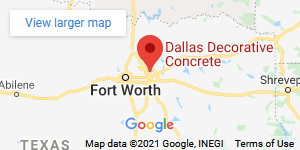Are you considering upgrading your driveway with a new driveway installation? A concrete driveway might be the perfect solution, offering a durable concrete surface.
Known for its durability and low maintenance, concrete not only adds aesthetic appeal but also boosts your property’s value.
This article explores what a concrete driveway is, the advantages of installation, the best times to start your project in Dallas, and the essential steps in the construction process, including concrete repair and curing concrete.
Additionally, it provides guidance on choosing the right concrete contractors for your project and avoiding common mistakes.
Read on to discover everything you need to know!
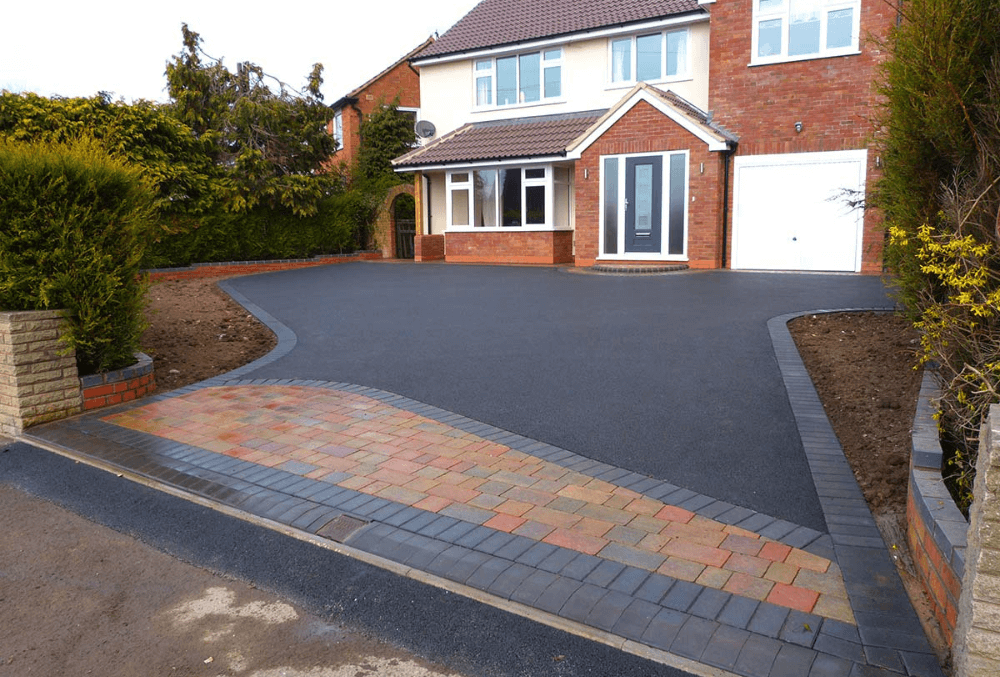
What Is a Concrete Driveway?
A concrete driveway is a durable and versatile surface that enhances the curb appeal of any property, serving as a reliable approach for vehicles and pedestrians alike.
Typically, it is constructed using a mixture of cement, gravel, and water, which, when poured and cured properly, provides a strong foundation that withstands heavy traffic and various weather conditions.
From residential homes to commercial properties, concrete driveways are a popular choice among homeowners and builders due to their aesthetic appeal and low maintenance, making them an ideal option for new driveways in diverse settings.
Why Install a Concrete Driveway in Dallas?

Installing a concrete driveway is a worthwhile investment that brings numerous benefits, making it a favored choice among homeowners and property developers.
Its exceptional durability ensures that it can withstand heavy loads and adverse weather conditions, while low maintenance requirements mean less hassle over time. Versatile in design, concrete can be molded and colored to match the aesthetic of any home, enhancing curb appeal while remaining functional.
Overall, the long-term performance and aesthetic possibilities of concrete driveways make them an attractive option for any concrete project.
Durability
Durability is one of the standout features of concrete driveways Dallas, as they are designed to withstand the test of time and extreme weather conditions, including freezing temperatures and heavy rainfall.
This makes concrete an excellent choice for regions that experience harsh winters or heavy storms, as it resists cracking and flaking concrete issues that can arise from fluctuating temperatures.
The strength of concrete allows for heavy vehicles to drive over without causing damage, making it a reliable surface for residential and commercial properties alike.
Various factors contribute to this remarkable longevity, including considerations for extreme weather and cold weather conditions.
- Proper curing methods: Ensuring that the concrete is cured adequately allows for optimal hydration, which enhances its strength and resilience.
- Material quality: Utilizing high-grade materials, including well-graded aggregates and appropriate cement mixes, plays a significant role in developing a robust surface.
- Drying chemicals: The application of drying chemicals can prevent premature evaporation, helping to maintain the integrity of the surface during the drying process, especially in cold weather.
In climates where temperature swings are common, such as during a harsh winter followed by a sudden thaw, durable concrete driveways can absorb these changes without suffering extensive damage. This capability further extends their lifespan and reduces maintenance costs, providing property owners with peace of mind.
Low Maintenance
Concrete driveways require minimal maintenance over their lifespan, making them an attractive option for homeowners who want a hassle-free solution.
Unlike asphalt driveways, which need periodic sealing and resurfacing, concrete maintains its integrity with simple cleaning and occasional sealing to protect against flaking concrete.
This low maintenance requirement not only saves time but also reduces long-term costs, allowing homeowners to focus on enjoying their driveway rather than worrying about repairs.
To ensure the longevity of these driveways, it’s essential to adopt a few straightforward maintenance practices. Regular cleaning can prevent dirt buildup and staining; a simple solution of water and mild detergent can work wonders.
Applying a sealant every 2-3 years creates a protective barrier against moisture and chemical damage, thus prolonging its lifespan. Homeowners should also consider using drying chemicals, especially during winter months, to combat ice formation that can lead to cracking.
A proactive approach—addressing minor issues like cracks as they appear—can significantly enhance the durability of a concrete driveway.
- Use a soft-bristle broom for dirt removal.
- Seal cracks promptly to prevent water ingress.
- Choose high-quality sealants suitable for local weather conditions.
Taking these steps will not only keep driveways looking their best but also minimize the chances of costly repairs down the line.
Versatility
The versatility of concrete driveways is evident in their ability to adapt to various design preferences and functional needs, making them suitable for a wide range of applications.
Homeowners can customize their concrete driveways with different textures, colors, and patterns, achieving a unique look that complements their property.
Concrete driveways can be easily enhanced with driveway overlays and resurfacing options, enabling homeowners to refresh their driveways without undergoing a full replacement, thus saving time and money.
This adaptability is further exemplified by stamped concrete, which allows for intricate designs that mimic natural stone or brick, providing an elegant and customized appearance. Homeowners can choose from a variety of:
- textures
- colors
- patterns
to suit their individual aesthetic. Concrete driveway resurfacing contractors play a vital role in not only preserving the condition of existing driveways but also in enhancing them.
With their expertise, these professionals can apply overlays that restore the surface’s integrity while introducing fresh designs or colors, transforming a standard driveway into an attractive focal point of the home.
Aesthetics
Aesthetics play a significant role in why homeowners choose concrete driveways, as they offer a wide range of design possibilities that can elevate the overall curb appeal of any property.
With various styles, colors, and finishing techniques available, homeowners can create a stunning entrance that enhances their home’s visual appeal.
Whether opting for a sleek, modern look or a more traditional design, a well-installed concrete driveway can serve as a beautiful complement to landscaping and architecture.
Design options for concrete driveways include:
- stamped patterns that mimic stone or brick
- colored concrete using pigment additives
- exposed aggregate finishes for a unique texture
These choices not only beautify the space but can also significantly influence property value. For instance, a driveway adorned with intricate designs and vibrant colors can create a lasting first impression, making the property more appealing to potential buyers.
Homeowners universally find personal satisfaction in a customized driveway that reflects their style, connecting aesthetics with both financial investment and self-expression.
What Is the Best Time of Year to Install a Concrete Driveway?
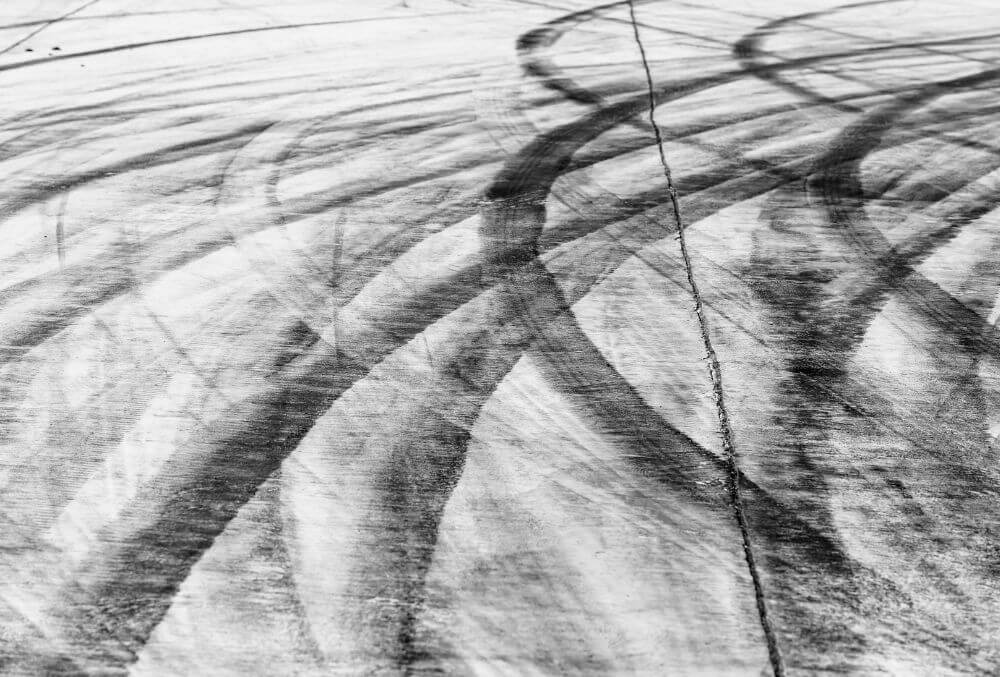
The best time of year to install a concrete driveway largely depends on the local climate and prevailing weather conditions, as temperature drops and adverse weather can significantly affect the curing process.
Ideally, homeowners should aim for milder seasons such as spring or fall when temperatures are conducive to proper curing, typically between 50°F and 85°F. Installing during extreme weather can lead to issues such as flaking concrete or improper setting, which can compromise the longevity of the driveway.
Factors to Consider
When planning to install a concrete driveway, several key factors must be considered to ensure optimal results, particularly regarding weather conditions and the potential impact on curing concrete.
Factors such as temperature, humidity, and the likelihood of freezing temperatures can greatly influence the setting time of concrete and its overall durability. By understanding these elements, homeowners can choose the right time and methods to achieve a successful installation.
To minimize the risks associated with adverse weather, it is crucial to evaluate local forecasts and choose a day that is not only clear but also falls within an appropriate temperature range for concrete work.
High humidity can slow down the curing process, while excessive heat can cause rapid evaporation, leading to surface cracking. Here’s a practical guide to improve the installation process:
- Monitor Humidity Levels: Aim for a relative humidity of 40-60% for best results.
- Check Temperature: Ideal temperature for pouring concrete is between 50°F and 85°F.
- Use Curing Compounds: Apply curing compounds if the weather is hot or windy to retain moisture.
- Heating Systems: Consider using heated enclosures if pouring concrete in cold conditions.
- Plan for Precipitation: Protective coverings should be on standby in case of unexpected rain.
By taking these precautions, homeowners can significantly enhance the longevity and appearance of their new concrete driveway, whether they’re planning for a winter, spring, summer, or fall season project.
What Are the Benefits of Installing a Concrete Driveway in Dallas?
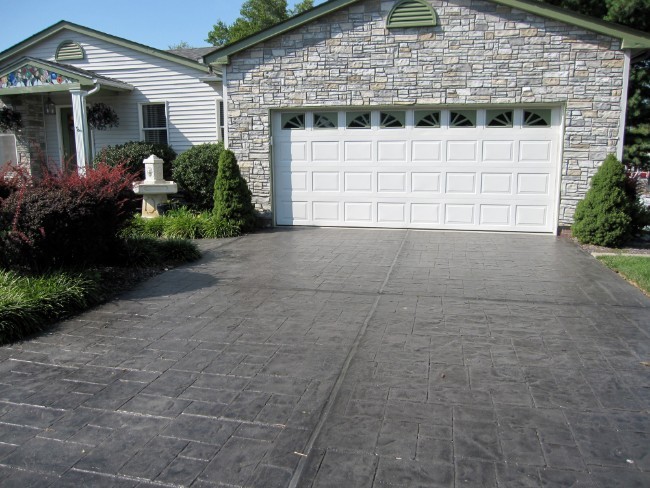
Installing a concrete driveway in Dallas offers a myriad of benefits tailored to the region’s unique climate and property market. With the area’s fluctuating weather conditions, concrete provides a resilient surface that withstands both the intense heat of summer and the occasional cold snap in winter.
Moreover, a concrete driveway not only enhances curb appeal but is also a cost-effective long-term solution that can significantly increase property value, making it an ideal choice for homeowners in Dallas seeking both functionality and aesthetics.
Weather Conditions
In Dallas, weather conditions play a critical role in the durability and performance of concrete driveways, especially when considering the area’s extreme weather patterns.
The intense summer heat and sporadic cold snaps can challenge the integrity of traditional driveway materials, but well-installed concrete driveways are designed to withstand these fluctuations.
Whether it’s concrete driveways in Dallas, concrete sidewalks, or even concrete patios, the right type of concrete can endure the region’s harsh conditions. When pouring concrete, it is essential to account for local weather patterns to ensure proper curing and prevent issues such as cracking or flaking concrete over time.
For instance, concrete slabs and concrete floors need special attention to detail during this phase to ensure longevity and durability.
For instance, when temperatures soar above 90°F, the curing process accelerates significantly, which may lead to premature drying and susceptibility to cracking. To combat this, it’s advisable to:
- Schedule the pouring early in the morning or late in the afternoon to avoid peak heat.
- Consistently mist the surface with water during the curing process to maintain moisture levels.
Conversely, during colder months, when temperatures drop below 40°F, the risk of freezing poses challenges. In such conditions, the following measures can help ensure that your concrete projects, whether driveways or concrete foundations, remain robust:
- Utilize heated blankets to retain warmth around the newly poured concrete.
- Consider using an accelerating admixture to help the curing process.
By being mindful of these weather challenges and implementing appropriate strategies, homeowners can greatly enhance the longevity and appearance of their concrete driveways.
Cost-Effectiveness
The cost-effectiveness of installing a concrete driveway in Dallas makes it an appealing option for homeowners looking for a dependable surface that offers long-term value.
From concrete driveway refinishing to concrete driveway resurface, homeowners have various options to maintain and upgrade their driveways cost-effectively.
While the initial investment may be higher than alternatives like asphalt, concrete’s durability and low maintenance requirements lead to significant savings over time, particularly when considering the reduced need for repairs.
The potential for increased property value further enhances the financial benefits, establishing concrete driveways as a wise long-term investment. Additionally, integrating elements like concrete patios and sidewalks can further amplify these benefits.
Concrete driveways present long-term financial advantages that homeowners should carefully consider. Below are key points highlighting these benefits:
- Longevity: Average lifespan for a concrete driveway can exceed 30 years, significantly outlasting other materials, which often require replacement or intensive repairs.
- Reduced Maintenance Costs: Unlike asphalt, which may crack and necessitate regular seal coating, concrete typically requires minimal upkeep, resulting in lower ongoing expenses.
- Increased Property Value: The addition of a well-installed concrete driveway can enhance curb appeal, potentially boosting resale value based on local market data.
- Local Market Trends: In Dallas, properties with concrete driveways often sell for approximately 10-15% more compared to similar homes with less durable surfaces, making it an intelligent choice for homeowners.
When accounting for these factors, the decision to choose a concrete driveway can be viewed as a financially savvy one, aligning immediate needs with long-term financial goals.
Increases Property Value
One of the notable benefits of installing a concrete driveway in Dallas is its ability to increase property value, an essential consideration for any homeowner.
A well-designed and maintained concrete driveway not only enhances curb appeal but also contributes significantly to the overall aesthetic of a home, attracting potential buyers.
This increased appeal can translate into higher resale values, making the investment in a concrete driveway an attractive proposition for those looking to sell their property in the future.
In fact, studies have shown that homes with high curb appeal can sell for 7-14% more than similar properties with less appealing exteriors. For instance, in neighborhoods across Dallas, properties showcasing features like stamped concrete driveways consistently outperform their counterparts at resale.
- A recent local market analysis indicated that residences with concrete driveways sold for an average of $15,000 more than those with gravel alternatives.
- Homes featuring well-maintained concrete driveways, including those that have undergone concrete driveway resurface, spent 30% less time on the market, making them particularly desirable among buyers.
Such statistics illustrate how a solid choice like a concrete driveway can create a compelling first impression, establishing an emotional connection with prospective homeowners. In a competitive real estate landscape, this investment is not only sensible but potentially lucrative, particularly in growing areas of Dallas.
How Long Does It Take to Install a Concrete Driveway in Dallas?
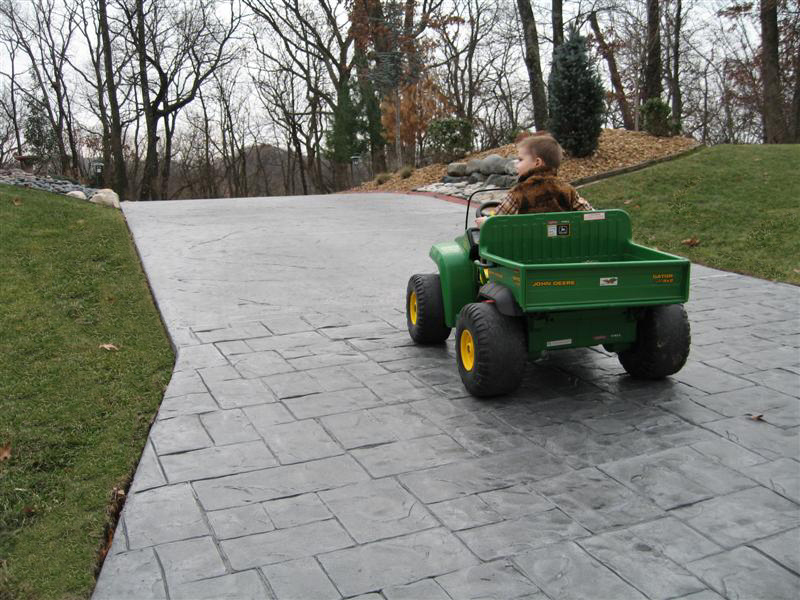
The installation time for a concrete driveway in Dallas can vary depending on several factors, including the size of the driveway, site conditions, and the complexity of the project.
On average, homeowners can expect the process to take anywhere from a few days to a week, factoring in preparation, pouring concrete, and curing time. Understanding this timeline helps homeowners plan accordingly and ensures they are well-informed about the duration of their concrete project.
In general, the installation process can be broken down into several critical steps that each contribute to the overall timeline. These include:
- Site Preparation: This initial phase often involves clearing the area of debris and leveling the ground, which can take from a day to several days depending on the site conditions.
- Form Setting: Once the site is ready, forms are built to shape the concrete, a task that usually takes a few hours.
- Concrete Pouring: This step typically occurs after the forms are in place and involves mixing and pouring the concrete. It generally takes a day, depending on the volume needed.
- Curing: The concrete must cure over the next several days, with a firm surface typically achieved in about a week.
To mitigate potential delays, homeowners should consider weather factors, material availability, and labor scheduling. Planning for these considerations upfront can ease frustrations as the project progresses.
What Is the Process of Installing a Concrete Driveway?
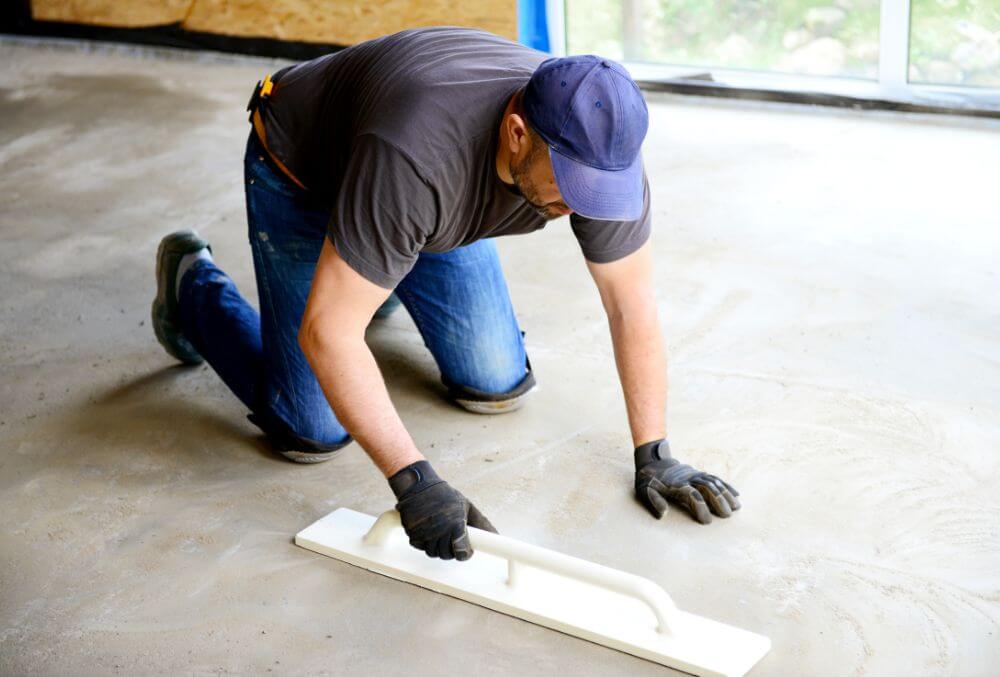
The process of installing a concrete driveway involves several critical steps, each contributing to the structural integrity and longevity of the finished product.
Starting with site preparation, which includes clearing the area and ensuring proper drainage, the next step is to formwork and reinforcement, laying the groundwork for pouring concrete. This is crucial for all types of projects, from concrete driveways to concrete floors and even concrete foundations.
After the concrete is mixed and poured, it undergoes a crucial curing process to achieve its ultimate strength and durability, making each phase of installation vital to the success of the concrete driveway project.
Site Preparation
Site preparation is the foundational step in the process of installing a concrete driveway, as it lays the groundwork for a successful installation. This is equally important for other concrete elements like sidewalks and patios.
This initial phase involves several specific tasks to ensure optimal results.
First and foremost, clearing the area of all debris, such as rocks, roots, and any previous driveway materials, is essential.
Next, leveling and grading the ground are crucial for creating a stable base; this helps to direct water flow and prevents pooling in problematic areas.
Drainage considerations cannot be overlooked, as improperly managed water can lead to future complications like cracking and settling.
When these tasks are executed meticulously, they not only enhance the performance of the concrete but also contribute to a smoother installation process and the overall longevity of the driveway.
Formwork and Reinforcement
Formwork and reinforcement are critical components of a successful concrete driveway installation, as they help define the shape and provide structural support to the concrete. Whether it’s for driveways, patios, or concrete floors, these steps are essential.
Formwork, typically made from wood or metal, creates the boundaries for the concrete, while reinforcement materials, such as rebar or wire mesh, are strategically placed to enhance the durability of the driveway.
This step is essential for preventing cracking and ensuring that the concrete can withstand heavy weights and adverse weather conditions over time.
Understanding the importance of these materials can significantly influence the longevity and reliability of the driveway. This is also applicable for concrete foundations and other structural elements. Here are some common types:
- Wood Formwork: Often accessible and easy to manipulate, wooden forms are ideal for various shapes and sizes, providing a customizable boundary for concrete.
- Metal Formwork: While more expensive, metal forms are reusable and provide excellent precision, making them a favorite in commercial applications.
- Reinforcing Bars (Rebar): This steel reinforcement is crucial for adding tensile strength to the concrete, helping it resist the forces that cause cracking.
- Wire Mesh: A simpler alternative to rebar, wire mesh can be laid out in the concrete to provide uniform support across larger areas.
By utilizing the appropriate formwork and reinforcement materials, homeowners can ensure that their driveway not only looks great but remains resilient against wear and tear for years to come.
Pouring and Finishing Your Concrete Driveway in Dallas
The pouring and finishing stage is where the concrete driveway begins to take shape, requiring careful execution to ensure a smooth and level surface.
Once the concrete mix is prepared and transported to the site, it is poured into the formwork, followed by techniques such as screeding and troweling to create a polished finish.
Proper finishing is vital for the aesthetics and performance of the driveway, as it influences the curing process and the final appearance of the surface.
In this critical phase, various techniques come into play, each contributing to both the visual allure and the practical functionality of the driveway. For example, after pouring, using
- screeding tools
- leveling devices
- float techniques
ensures that the surface is uniformly flat, which not only looks appealing but also prevents water accumulation and enhances durability.
Following screeding, troweling helps to refine the texture, allowing for finishes that can be customized to match the surrounding landscape.
The choice of finishing method can significantly affect the driveway’s traction and resistance to wear and tear, highlighting the importance of meticulous attention during this phase.
Curing and Sealing
Curing and sealing are essential final steps in the installation of a concrete driveway, as they significantly impact the strength and longevity of the surface. Curing involves maintaining adequate moisture and temperature conditions to allow the concrete to harden properly, which can take several days.
After curing, sealing is applied to protect the concrete from stains, water, and weather-related damage, enhancing its overall durability and appearance. This two-step process is crucial for ensuring that the driveway remains in excellent condition for years to come.
Proper curing is vital, as it helps in achieving the desired compressive strength and resilience of the driveway. Without adequate curing, cracks may develop, leading to costly repairs.
Common methods include covering the surface with wet burlap, using curing compounds, or simply spraying water periodically.
On the other hand, sealing plays a crucial role in safeguarding the surface from harsh environmental elements. Homeowners have various sealing options, including penetrating sealers that absorb into the concrete and surface sealers that create a protective layer.
Each of these products serves to prolong the life of the driveway by minimizing the effects of freeze-thaw cycles, UV damage, and oil or chemical spills.
Overall, maintaining effective curing and sealing practices ensures that the driveway can withstand heavy loads and adverse weather conditions, thus enhancing its long-term durability and performance.
How to Choose the Right Contractor for Your Concrete Driveway Installation?

Choosing the right contractor for your concrete driveway installation is a crucial step that can significantly influence the quality and durability of the finished product.
Selecting the appropriate professional means not only finding someone who understands the technical aspects but also someone who values open communication and customer satisfaction during the entire project.
When selecting a contractor, it is important to consider their experience, customer reviews, and portfolio of past projects, as well as their expertise in handling specific materials and techniques related to concrete driveways. Here are some key factors to keep in mind:
- Licenses: Verify that the contractor has the necessary licenses to operate in your state or locality. This not only guarantees their legitimacy but also reflects their commitment to following legal regulations.
- Insurance: Ensure the contractor carries both liability and worker’s compensation insurance. This protects you from potential liabilities if accidents occur during the installation process.
- Warranties: Inquire about the warranties offered for workmanship and materials. A reliable contractor should stand behind their work and be willing to address issues that may arise post-installation.
When interviewing potential candidates, consider asking relevant questions such as:
- What is your experience with concrete driveway installations?
- Can you provide references from previous clients?
- What is your estimated timeline for project completion?
- How do you handle unexpected issues or delays during the installation?
- What maintenance tips do you recommend for extending the life of my driveway?
These discussions can reveal more about their expertise and help you gauge how comfortable you feel with their approach.
What Are Some Common Mistakes to Avoid When Installing a Concrete Driveway?
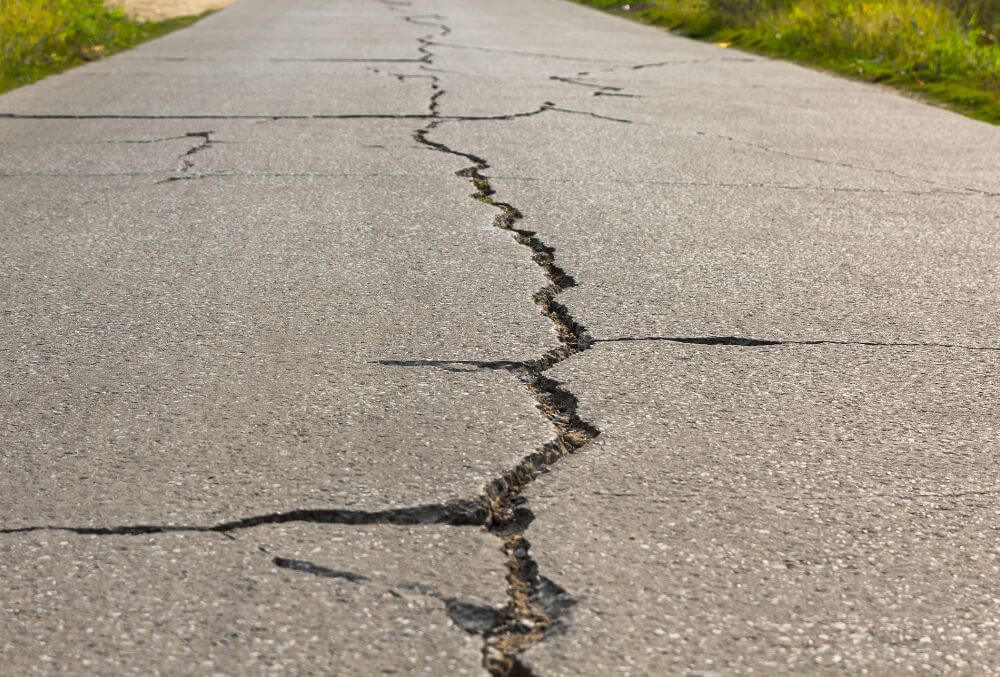
Avoiding common mistakes during the installation of a concrete driveway is essential for ensuring a successful project and preventing issues such as flaking concrete and uneven surfaces.
In fact, the ramifications of these missteps can be costly and time-consuming, often leading to the need for premature repairs or even complete replacements. For instance, inadequate site preparation can result in drainage problems, which subsequently may undermine the integrity of the surface over time.
- Homeowners are encouraged to evaluate the ground’s stability thoroughly before commencing work.
- The choice of high-quality materials is crucial; using subpar products can compromise the driveway’s longevity.
- Neglecting to account for weather conditions during both pouring and curing can lead to serious problems like cracking.
By keeping these considerations in mind, anyone embarking on this installation journey can significantly enhance their chances of a successful outcome.
Read our Related Articles: Start FRESH with Concrete Driveway Resurfacing for the New Year

